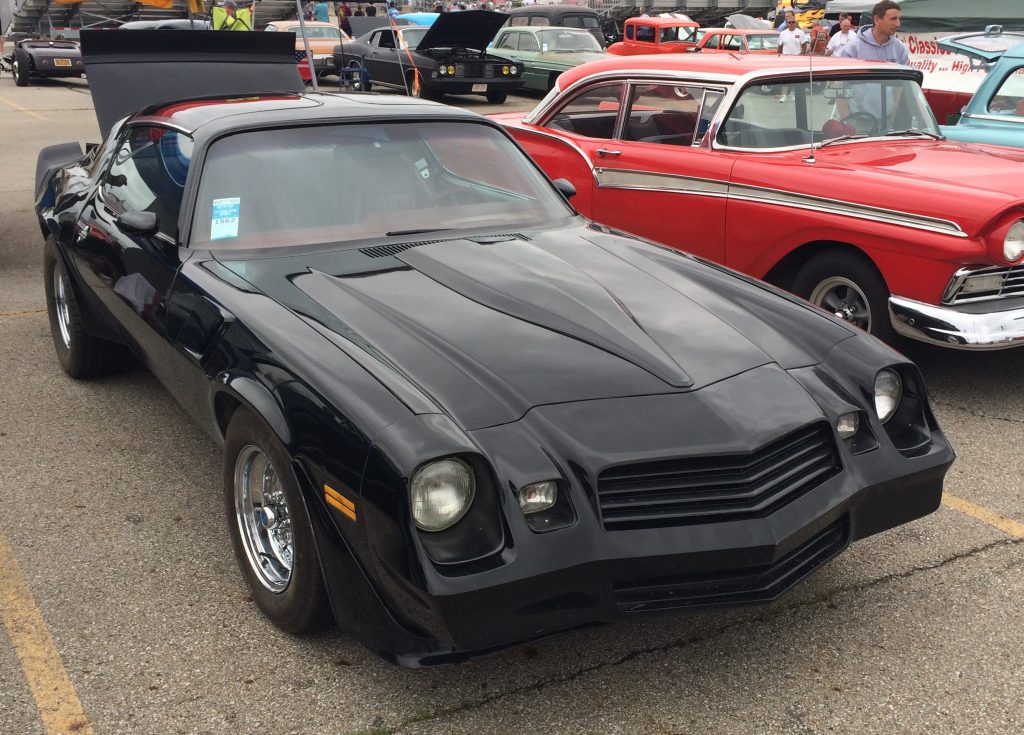I recently bought a really awesome street Camaro with a 355ci small-block, a Super T-10 4-speed, and a 12-bolt with 4.10 gears. The engine runs really great and pulls hard all the way to 6,500 rpm but it has this really bad knock when the engine’s cold. When I first took the car on a test drive, it was already warmed up from a guy who drove it before me. But after I bought the car and then drove it the next day it had this really bad knock when I first started it. After it warms up, it’s not nearly as loud. But at first it sounds like the rods are going to come right out of the pan when the engine is cold. I called the guy who sold me the car and he said this was normal because it has race pistons in it and that the engine was fine. I’m not sure I believe him. He says not to worry about it because the engine has always done that and the engine has lots of street miles on it without a problem. Did he just pawn off a broken motor on me?
D.L.

Without firsthand knowledge or hearing the knock, this is a tough call, but there is another explanation beyond bad rod bearings. First, if the engine had a bad bearing, the knock would be consistent and not just when the engine is cold. Oil is thicker when cold so if there was a rod knock, I would think that it would be far more prevalent and louder when the engine is warmed up rather than when it’s cold.
Having said that, I used to own a small-block Chevy that had an audible four-second knock when it was cold. That probably was a rod bearing—but the noise disappeared once full oil pressure was established
If you think the engine may be bad, you can send off an oil sample to any number of different companies online that do oil analysis. If there is bearing material in the oil, they will let you know immediately. I found a company called Blackstone Labs that will send you a free kit. A standard oil analysis costs less than fifty bucks. That’s pretty cheap insurance.
There is another explanation. You mentioned that the previous owner said this engine had race pistons. We’ll assume that we’re talking about forged pistons. There are two different aluminum alloys that forged pistons are made from—2618 and 4032. The main difference between the two alloys is the silicon content, with the 4032 piston containing more silicon. The net effect is that 2618 pistons require a much greater cold clearance—generally around 0.004 to 0.005-inch. This is done to compensate for the amount the piston will expand as it comes up to normal operating temperature. This spec is the clearance between the piston skirt and the cylinder wall. Because a 4032 piston has more silicon, it does not “grow” nearly as much, which means the cold operating clearance is roughly half that of the 2618 piston.
The net effect of all this is that the 2618 style piston will be noisy when first started with a cold engine. Depending upon how the engine was assembled and how much clearance there is between the cylinder wall and the piston skirts, this can make for a noisy engine. Generally, once the engine achieves its normal operating temperature—with water at around 180 to 190 degrees and oil temperature above 200 degrees F, the piston noise (often called piston slap) shouldn’t be noticeable.
My guess is that your engine is equipped with 2618 pistons that might be a bit looser than they should be and that is the source of your noise. Of course, there are no guarantees on that so an oil quality test would be a very good idea. If you decide that this noise is too objectionable—the only realistic fix is new pistons.
The recommendation would be that if the cylinder walls are in good shape, you could replace the existing pistons with 4032-style alloy pistons. Most of the major piston companies offer both alloys, so choose carefully. I would recommend also changing the rings and since the engine has to come completely apart, you should inspect the bearings and perhaps change them as well if they look questionable. Companies that sell a 4032 alloy piston include JE’s Sportsman line of pistons, Mahle, Manley, and Wiseco to name a few.
JE Pistons has also just released a new coating that might be of interest. It’s called Perfect Skirt and it offers something that previous skirt coatings do not. The Perfect Skirt coating is applied to a JE 2618 piston and is applied very thick so that it minimizes the cold clearance to the cylinder wall. The coating is designed to self-abrade and also to compress. So some of the coating will come off the first few times the engine is started but eventually the coating establishes a minimal clearance to prevent piston slap during cold engine operation. In JE’s Perfect Skirt promo video they say the piston-to-wall clearance is reduced down to 0.0005-inch, or half of one thousandths. That will keep the pistons quiet.
I’ve not heard an engine run “before and after” with this coating so I can’t comment on whether it really quiets the engine but it sounds like a great idea. Of course, this is only offered for JE pistons right now but you might look into it. At the moment, they don’t offer a Perfect Skirt-coated piston for a small-block Chevy, but that will probably change very soon.

Comments